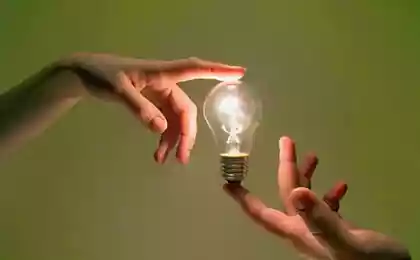166
10 kidnappers of life energy
Ecology of life. Increasingly, people feel exhausted and tired for no particular objective reason. It is as if an invisible thief is constantly stealing our strength, leaving only apathy and fatigue. Modern science has already identified the main "energy vampires" of our lives - factors that quietly but systematically deprive us of vitality. Understanding the mechanisms of energy leakage is the first step to restoring balance and regaining control of your own well-being.

Energy Depletion in the Modern World
In today's high-speed world, the problem of energy shortage is becoming epidemic. According to research conducted by the American Psychological Association, about 77% of people regularly experience symptoms of emotional exhaustion, and 44% feel chronic fatigue despite normal sleep duration. Where does this strange fatigue come from? The answer may lie in the “energy thieves” around us, invisible factors that slowly but surely drain our vital resources.
Our life energy is not an infinite resource. Like a battery, it requires careful use and timely recharging. Understanding exactly what drains our inner reserve of strength is the key to overcoming chronic fatigue and returning to a fulfilling, energetic life.
The Top 10 Stealers of Life Energy
1 Information overload
The constant flow of news, notifications and messages puts an undue strain on our brains. Neurobiological studies show that continuous information processing activates stress mechanisms and literally burns out neural connections. Each interruption of the workflow with notifications takes about 23 minutes to fully restore concentration. The brain, operating in a constant switching mode, consumes 30% more energy than with focused activity.
Decision: Implement the practice of “information detox” – periods of time (from a few hours to several days) when you completely disconnect from the flow of information. Turn off notifications, set a specific time to check messages, limit your news consumption to 15-20 minutes a day.
2 Toxic environment
Researchers at Harvard Business School have found that the negative effects of toxic people can significantly reduce cognitive function and performance. In constant interaction with critical, devalued or manipulative people, our body produces increased amounts of cortisol, the stress hormone, which leads to chronic exhaustion. Interacting with energy vampires can reduce your productivity by 40% and significantly increase your risk of burnout.
Decision: Do an audit of your surroundings. Make a list of people who you feel exhausted after meeting. Set clear emotional boundaries using the gray stone technique – minimizing the emotional response to provocations. In extreme cases, consider reducing or terminating contacts.
3 Chronic sleep deprivation
According to the National Sleep Foundation, about 60 percent of adults regularly miss the recommended 7-9 hours of sleep. Even a slight lack of sleep (1-2 hours) reduces cognitive function by 25-30% and significantly reduces energy reserves. In a state of chronic lack of sleep, the body works in a mode of constant savings, redirecting resources only to vital processes and depriving us of full-fledged vitality.
Decision: Implement the principles of sleep hygiene: maintain a regular schedule, create a ritual of preparation for sleep, eliminate gadgets 1-2 hours before going to bed, maintain a cool temperature in the bedroom (18-20 ° C). Use rapid sleep techniques: 4-7-8 (inhale 4 counts, delay 7, exhale 8) or progressive muscle relaxation.
4 Inefficient nutrition
A modern diet rich in simple carbohydrates and industrially processed foods creates significant fluctuations in blood sugar levels. This leads to energy roller coasters – short-term bursts of energy followed by deep recessions. Studies show that a diet high in processed foods is associated with a 25 percent increased risk of chronic fatigue.

Effect of nutrition on the energy balance of the body
Decision: Replace simple carbohydrates (white bread, sweets) with complex (whole grain products, legumes). Add to the diet foods rich in omega-3 (fatty fish, flaxseed), which improve cellular metabolism. Follow the principle of “rainbow on a plate” – include products of different colors to provide the body with all the necessary trace elements. Introduce interval nutrition (e.g. 16:8) that promotes energy balance.
5 Chaos in Space
Neurobiological research at Princeton University has shown that visual disorder causes the brain to constantly process many objects, expending significant cognitive resources even when we are not aware of it. People working in cluttered environments have 30% more difficulty concentrating and 25% more fatigue. Chaos in physical space often reflects and creates mental chaos, which becomes a constant source of energy leakage.
Decision: Implement the Japanese philosophy of “5S”: sorting (getting rid of unnecessary), systematization (organizing space), keeping clean, standardization (creating rules for maintaining order), improvement (constant improvement of the system). Set aside 10 minutes daily to maintain order in key areas of your space. Use the principle of “one touch” – solve problems immediately, without delay.
6 Chronic postponement
Psychologists from the University of Sheffield have found that procrastination triggers a special cycle of self-exhaustion: delayed tasks require constant mental monitoring (the Zeigarnik effect), which consumes significant energy resources even in a state of rest. Each deferred task continues to hang in the background, consuming up to 15% of the available cognitive energy.
Decision: Master the technique of “tomato”: 25 minutes of concentrated work, 5 minutes of rest. Break down large tasks into microtasks (no more than 20 minutes per task). Start the day with the most unpleasant task (the principle of eating a frog). Use the two-minute rule: If the task takes less than two minutes, do it immediately without delay.
7 Perfectionism
Research conducted at the University of British Columbia found that perfectionists spend 30-40% more mental energy on tasks than people with a more flexible approach. Constant striving for an unattainable ideal creates a state of chronic nervous tension, which leads to a significant expenditure of energy resources of the nervous system. Perfectionism is also associated with an increased risk of burnout syndrome and psychosomatic disorders.
Decision: Practice the principle of “good enough” – determine the minimum acceptable result for each task. Use the time-limiting technique – set a specific time for a task and accept the result achieved within that framework. Introduce the practice of conscious mistakes – deliberately make small imperfections to train tolerance to imperfections.
8 FOMO syndrome (fear of lost profits)
Neurophysiological studies show that the FOMO state activates anxiety centers in the brain, triggering a cascade of stress responses in the body. Constantly comparing your life with idealized images from social networks provokes the production of cortisol and adrenaline, which leads to adrenal exhaustion and chronic fatigue. According to psychological studies, people exposed to FOMO experience significantly less life satisfaction and higher levels of energy exhaustion.
Decision: Practice digital hygiene: Limit your time on social media, turn off most notifications. Keep a gratitude journal focusing on the positive aspects of your life. Implement the Joy of Missing Out practice: consciously choose what you will NOT do, and enjoy that choice.
9 Emotional suppression
Psychophysiological studies show that suppressing emotions requires significant energy expenditure. Functional magnetic resonance imaging (fMRI) shows activation of the amygdala and prefrontal cortex during emotional suppression, which significantly increases glucose consumption by the brain. Chronic suppression of emotions is associated with an increased risk of psychosomatic diseases and reduced immunity.
Decision: Implement regular practice of emotional ventilation: keeping an emotional diary, expressive writing or drawing techniques. Master the technique of “name to tame” – simply naming an emotion reduces its intensity and energy consumption. Practice Mindfulness to develop the skill of observing emotions without the need to suppress them.
10 Multitasking
Neurocognitive research from Stanford University has proven that multitasking is a myth. The brain does not perform several tasks simultaneously, but switches between them quickly, which requires a huge amount of energy. Each switch consumes additional energy to “reset” neural circuits. Chronic multitasking reduces productivity by 40% and increases error rates by 50%.

Neural activity in multitasking
Decision: Practice monotasking: Set aside specific time blocks for specific tasks and eliminate all distractions during this period. Use the "deep work" technique - set aside 90-minute periods of full concentration on one task followed by a full rest. Group similar tasks into blocks to minimize cognitive switching.
How to restore energy balance
Understanding the major energy thieves is just the first step. Restoring energy balance requires systemic changes and new habits. According to neuroplasticity research, it takes 21 to 66 days of consistent practice to form stable neural connections that support a new habit.
The key to energy transformation is gradualism. Start by identifying the 1-2 most important energy vampires and focus on eliminating them. When new strategies become automatic, move on to the following problem areas.
Remember that restoring energy balance is not a short-term project, but a way of life. By learning to recognize and neutralize energy thieves, you will not only regain your vitality, but also significantly improve your quality of life in all its aspects.
Glossary of terms
Energy balance is a state of optimal distribution and use of the vital forces of the body, in which energy consumption does not exceed its replenishment.
The Zeigarnik effect is a psychological phenomenon in which unfinished tasks are held in memory better than completed tasks, creating a constant cognitive strain.
FOMO (Fear of Missing Out) syndrome is the fear of missing out on important events or opportunities, accompanied by anxiety and compulsive checking of social networks and news feeds.
Interval nutrition is a model of nutrition in which the period of eating alternates with the period of abstinence from eating in a certain ratio (for example, 16 hours of fasting and 8 hours of eating).
Sleep hygiene is a set of practices and conditions that promote healthy and high-quality sleep, including the regime of the day, the organization of a bed and rituals of preparation for sleep.
Mindfulness is the practice of conscious presence in the current moment, including an unassessed observation of one’s thoughts, feelings and bodily sensations.
The gray stone technique is a psychological method of countering manipulation and toxic interactions, consisting in minimizing emotional reactions and providing the most neutral, “boring” responses to provocations.
Deep work is a state of full concentration on a complex task without distractions, allowing you to achieve maximum productivity with minimal energy consumption.
Psychosomatic technique "Conversation with symptom"
8 Signs That Indicate You Are In A Victim Condition























